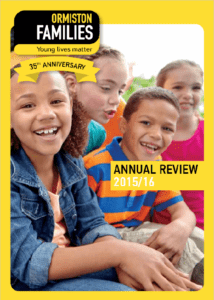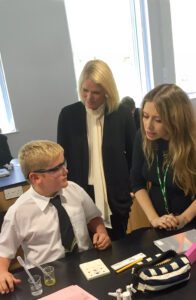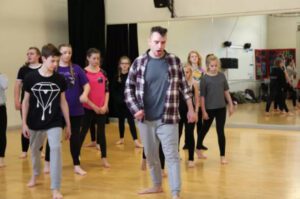In the first of a two-part series for TES magazine, Ormiston Trust CEO James Murray explains how schools and trusts can embrace the power of youth social action projects.
Since 2017, Ormiston Trust has funded and supported hundreds of youth social action (YSA) projects as part of our #WeWill programme – which is match-funded with the National Lottery Community Fund.
To date, in excess of 10,000 young people in more than 150 schools have been involved – both those in Ormiston Academies Trust and in partner schools – on projects ranging from pupils at Gateway Learning Community hosting a summer arts festival for their local community to students at Ormiston Park Academy campaigning to end single-use plastic.
As well as working with schools directly, we provide resources and a free step-by-step guide aimed at supporting schools to embed high-quality YSA programmes at scale. Having refined these over several years, we will be making them freely available for all from February.
Our hope is that it will inspire more schools, trusts and education groups to instigate YSA projects around the country, based on a five-step model, the first three stages of which are detailed below.
Step 1: Inspire
The first step is to inspire students by providing an awareness of YSA and social issues, conducting light-touch skills training, undertaking some initial basic reflection on goals, and ensuring there is an overall clarity to your YSA plans.
We would recommend using ready-to-deliver assembly material and lesson plans to explain challenges and what others have done to make a positive impact.
Once staff and young people understand what YSA involves, students are able to take a lead and will be encouraged, initially, to think about the world around them and issues they care about.
School staff can then run a series of skill-building activities that provide a foundational level of training, and students can complete journals or passports that capture what they hope to achieve by engaging in the process, using these documents to track progress.
Step 2: Explore
The second step is for students to think about issues they want to support, and to learn from others.
This can be done over the next two to five sessions of a YSA programme to explore social issues and solutions. From this, staff can then encourage students to think about the specific issues they would like to address.
Wider external stakeholders – charities, businesses and/or community members – can also be brought in to provide additional details about social challenges as young people conduct research. These stakeholders can, if interested, get involved in helping students to plan and deliver their action.
Agency is a key pillar on which social action should be built. Empowering young people to take their ideas forward will develop their sense of control and engagement in the project so it is essential that as many students as possible take the lead during the process and that schools spend some time collating ideas.
When engaging whole year groups, decisions about which causes students might wish to address could involve completing a short survey to find the most popular cause for each class.
Where a school is working across year groups or with smaller cohorts, students can convene and agree on issues in other ways as appropriate.
Step 3: Plan
Before students take action, the third stage involves detailed planning and budgeting. While students will have covered, to a degree, some ideas for action, they need to confirm exactly what they will do.
Young people can then organise themselves into teams and take on key roles to create elements of the plan, including those that look at delivery methods, costs, partners, communications and fundraising.
Schools should ideally set aside specific sessions for students, with teacher support to create a working plan for the project. Students can then think about how they can maximise the impact of their project by considering wider examples.
During this stage, you can encourage students to think more widely about any potential hurdles they might face. If planning a fundraiser, for example, will they need to find volunteers? Or if planning to support the school in reducing single-use plastic, who are the key people to speak to?
These steps support students in developing critical thinking skills, as they are encouraged to think laterally about their projects and create well-thought-out implementation plans.
Overall, the initial stages of implementing a YSA programme in your school are crucial for engaging students and developing their skills, and then providing the foundations for the ideas to take flight. Next month, we will look at the final two steps: “Act” and “Reflect”.
We are also showcasing our resource platform at the Bett Show in late January and have a current grant programme available, which you can access here, for schools looking to find out more.
James Murray, CEO of Ormiston Trust.









